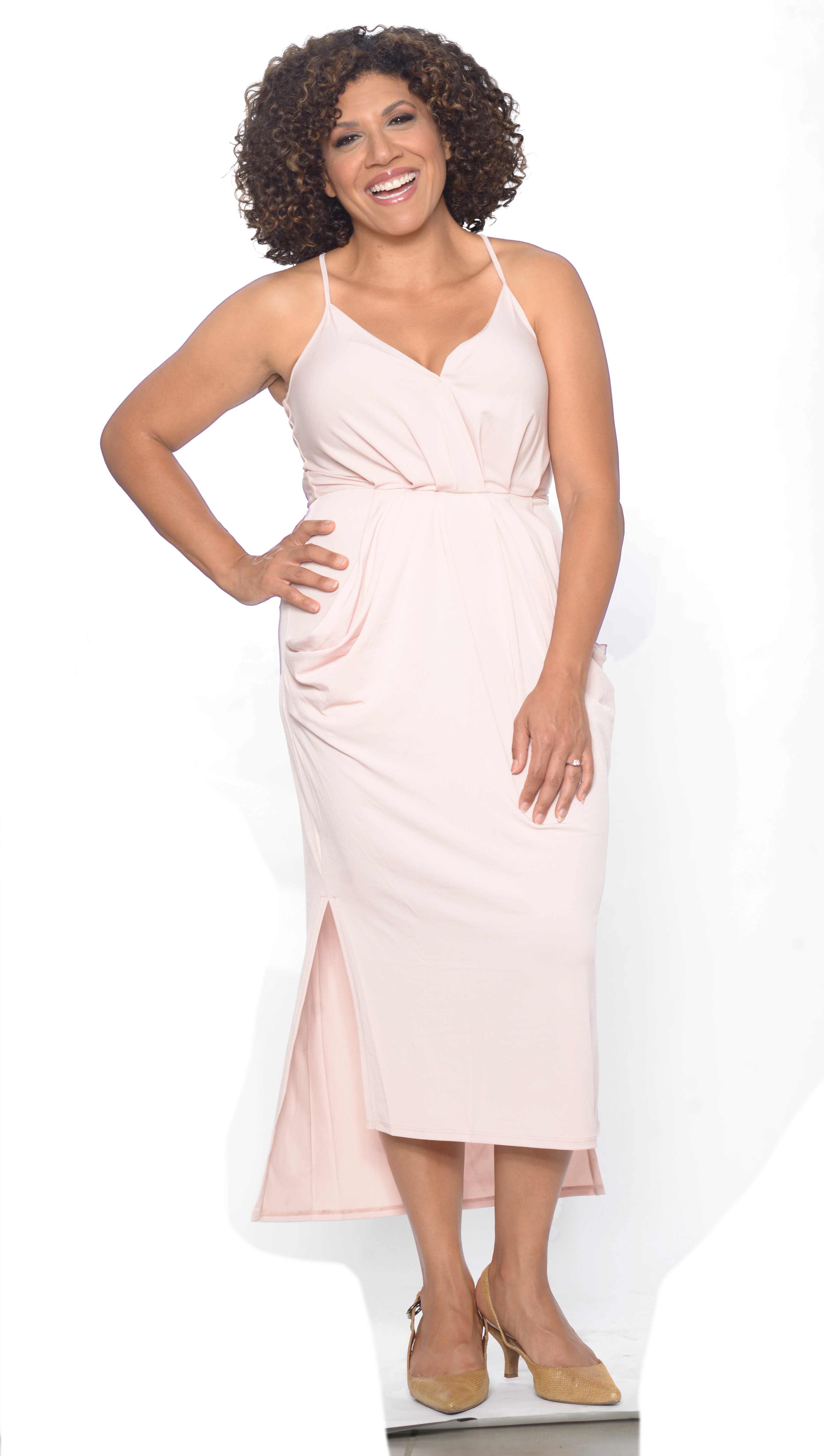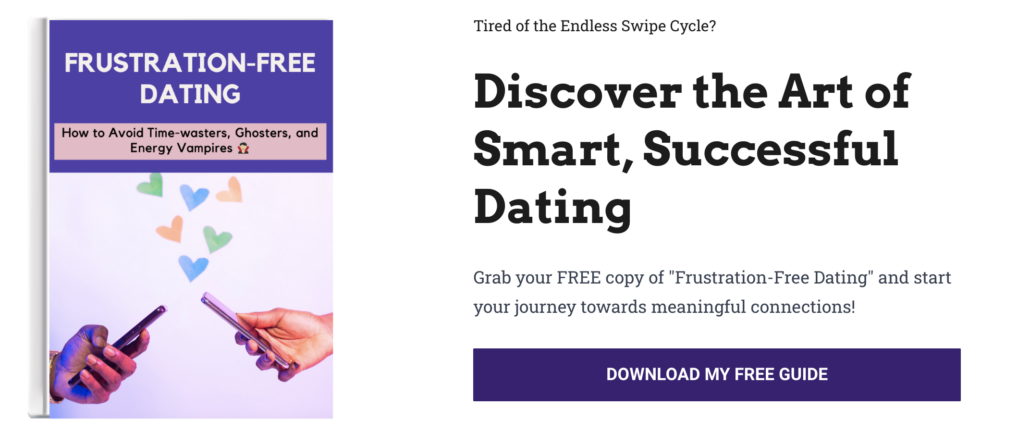Financial Intimacy & Reset Relationships
Successful relationships thrive on compatibility, vulnerability and intimacy. But, talking to your partner about your finances can be downright scary.
Don’t worry. Financial therapist Amanda Clayman is here to put your fears to rest. She’ll illuminate how money fears show up in dating and relationships and give us the tools to have a healthier outlook on finances for ourselves and our partners.
DATING DISH (1:30)
(1:30) Feel like something is missing? Maybe it’s time for a “reset relationship”:
Stylist magazine suggests that a “reset relationship” could help you rediscover the spark you’ve been missing. According to the article, it turns out that a lot of us want to make what they call big life changes, such as quitting a job and ending a relationship. In fact, a new study from Bumble and Plenty of Fish said that almost half of single people are craving a reset in their dating life, and 72% desire for life to change significantly rather than go back to how it was before COVID 19.
So what is a relationship reset? Basically, It’s a relationship that is all about serving your own need to refresh your life and get yourself out of a funk. It’s not that different from a rebound relationship (except in this case, you’re rebounding from this pandemic). But Stylist mentions how reset relationships aren’t only a pandemic phenomenon – rather that they actually can happen at any time in your life when you feel stuck.
If you’re thinking about diving into a reset relationship of your own, Damona suggests that you don’t look at it as a temporary thing. Look at it as a mindset shift that is potentially going to change the entire trajectory of your life. Now, don’t get panicked. This sounds like a lot, but you can make these changes in small incremental steps. For instance, try opening up your search preferences in your dating app to include qualities you hadn’t thought about before. After all, to go someplace mentally that we’ve never been, we have to do something we’ve never done (or date someone we never thought we’d be open to).
Another way you can prep for your reset relationship is to question the rules and requirements you’ve made for the people you’re dating. Who wrote these rules? Did you write these rules? Did society write these rules? Do these rules still apply to you? Really focus on your must haves and deal breakers, and look at them through the lens of your future. Because maybe if you explored a little bit more, that reset in your dating life could lead to a tremendous reset in the way that you live the rest of your life.
Are you looking for your reset relationship? Then maybe you need the Profile Starter Kit to get you online easily, and moving forward in your dating success story.
Download yours for free here.
AMANDA CLAYMAN (9:09)
Damona is so excited to welcome financial therapist Amanda Clayman! Amanda specializes in the cognitive, emotional, and behavioral aspects of our financial well-being (hence, financial therapist).
She is the host of the recurring Death, Sex & Money podcast series Financial Therapy with Amanda Clayman, and authored several financial wellness courses for LinkedIn Learning. Amanda’s advice has been featured in CNBC, Fox News, The New York Times, The Wall Street Journal, REAL SIMPLE, Forbes, and more.
Amanda’s passion for financial wellness began with a dramatic styling mishap, which she will share with Dates & Mates listeners today.
(11:00) Universal financial red flags:
Damona mentions how she’s received the question from a client, if she should date someone with significant debt. Amanda brings up the idea that for some people, if a potential partner does have debt, that makes them feel incredibly vulnerable about their own security – “and anything that makes us feel vulnerable is obviously our business and something that we can set boundaries around.” Although Amanda declares having significant debt isn’t universally a red flag on its own, it might be a red flag or deal breaker for some based on their own relationship with financial vulnerability.
Damona inquires if there are any universal red flags, and Amanda responds: “When I think about red flags, I think about them more in terms of process… like if a person is really secretive and they won’t disclose things even when you ask them to, that’s a red flag for me. Because that shows me something about how that person is going to be open to the kind of partnership that I have in mind for my potential mate.” Amanda also adds how someone who won’t engage with you and discuss both your needs and wants around money is definitely a red flag – communication is key.
(13:13) What does it mean when you’re withholding spending money?:
Damona brings up a story about a friend of hers who grew up with money and a stable job, but weirdly enough was always so insecure about her spending. Damona continues to ask, what does it signify to have extreme frugality with money? “So I love in the example with your friend, the characterization [you used] was that something was outside of her comfort zone, or that everything it seemed like was outside of her comfort zone. And so she was bringing in this kind of anxious intensity to what maybe should have been a simpler choice… And absolutely, this is where our inner set of experiences and sort of strategies that make sense to us [come into play], where sometimes it feels like our insides are not quite matching the outside.”
Amanda uses the quality of frugality as a specific example. She describes how we can differentiate between frugality being a strategy (i.e. being really careful with your means and your resources and a way of paying extra close attention), or we can think of frugality as a rigid behavior (i.e. where the caution is not matching the circumstances). But for the person inside of the behavior, frugality may have a totally other purpose. For example, Amanda describes how people who foster a high degree of control in their financial lives do so because they think control is the antidote (most likely for anxiety). So if someone has significant anxiety, then exerting control in their finances is sort of a continuous loop in that person’s mind – and that’s being expressed in their relationship with money.
(15:46) Self-indulgence & money:
Have you ever experienced guilt over treating yourself to something you knew you didn’t need? Or tried to buy something self-care oriented, only to counterintuitively feel like you were indulging yourself? Amanda addresses this anxiety – “What I would like to say to everyone is that we all have money ‘stuff’. So I think stepping back and being like, this is all very personal, how do I want money to work for me? Take the decision making into a clear and neutral place.”
When Amanda says ‘neutral place,’ she is speaking to the way we direct our money outside of those times when old stories and old obstacles jump up in the way, and tell us that we can’t or we’re bad or we’re not worth it. Taking your relationship with your finances to a neutral place, if only for a few moments, is where you can engage more neutrally with the tool properties of money, such as organization, allocation and negotiation. “We can focus on those aspects to try to program self-care into our budget. We experience ourselves as being able to use money effectively, to nurture, grow, take care of ourselves.”
(17:15) The $19,000 Haircut:
Amanda’s journey to financial wellness all started with what she poeticizes as a $19,000 haircut. “I took on a lot of my parents’ anxiety about money without knowing it, since my parents had experienced real deprivation in their childhoods… And when they came into adulthood, they always felt like the wolf was at the door…And I didn’t have the ability to know if that was true or not true in terms of danger… But when I got to be a grown up, I noticed that I had a really hard time paying attention to money, that anytime I was trying to look at my cash flow, look at my expenses, even to make a deliberate decision about money, I just couldn’t do it. I would get so triggered by it.”
Amanda persists that because of her financial triggers, she became increasingly impulsive with her spending habits – doing a lot of emotional spending, bouncing checks just to get by, and later moving to New York with nothing in the bank. She says everything came to a head when she asked her mom to give her a (what turned out to be terrible) haircut, because she had bounced a check at her hairdresser and couldn’t go back.
Damona clarifies, “and you were at that point $19,000 in debt, yes? All of those checks that you were writing finally caught up to you.” Amanda responds, “I look at myself, like who is that person who just moved from Michigan to New York, like it’ll all work out? And the fact is, it did. Financial problems and consequences can be very, very real. But where we can, I think that we should appreciate that there’s a lot of on the job learning when it comes to money.”
(24:35) The Pillars of Financial Intimacy:
Amanda often speaks to the idea of ‘financial intimacy’ and the Five Pillars that help foster financial intimacy in a relationship. She gives us a rundown of each quality below:
- Equality. “Meaning that both partners have equal decision making power.”
- Inclusivity. “That means that both partners have to show up to this process, there’s no opting out by one person, there’s no pushing out by the other person.”
- Transparency. “This is how we make sure that both partners have access to the information that they need. And it doesn’t mean that we can’t negotiate areas for privacy, but even those areas of privacy still have boundaries. Like we might say, both partners have to agree not to open new accounts without talking to the other person, or any expenditure above a certain point is going to get discussed.”
- Flexibility. “Flexibility means that we allow ourselves to change, we allow our decisions to evolve that a level of sort of exposure and vulnerability that may not feel right for you at one period in the relationship, may become more right for you as time goes on… The point is, we can change all of these things, there’s no right or wrong thing that we have to stick to.”
- Sustainability. “Sustainability is like, it just has to work enough for both of you. Like if one person is feeling like everything is wonderful, and the other partner is like, ‘I cannot stand to live under this tyranny’. Your money may look okay, but trust me – that is showing up somewhere else in the relationship.”
Connect with Amanda on IG @amandaclayman, or visit her website to learn more about private coaching and courses.
DEAR DAMONA (31:45)
Submit your questions on Instagram, Twitter, or Facebook and hear our answers live on the show! Here’s what our listeners asked about this week:
- VIP Question from D – What are the rules of thumb for continuing a conversation after the person takes a long time to respond back? For example, I finally got a response to a basic message that I sent this past June. Should I respond right away or should I wait a few days? I’ve also had people respond back recently after I sent an initial message… in 2019. I’ve also had a person respond to my initial message, then ghost me for about a year, start talking again and then ghost me again. Any suggestions?
DAMONA’S DEALS
- Download the OkCupid Dating App for free today!
- Click here to try Damona’s free First Date Starter Kit!











